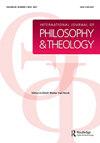Communal recognition and human flourishing: a Kierkegaardian account
IF 0.3
0 PHILOSOPHY
International Journal of Philosophy and Theology
Pub Date : 2022-04-29
DOI:10.1080/21692327.2022.2070862
引用次数: 0
Abstract
ABSTRACT Recent debates over the role of recognition by the community for one’s development and flourishing generally discuss community in a univocal sense: the way that recognition functions in particular communities is not fundamentally different from the way it functions in the larger community. They also tend to logically prioritize a fundamental human identity over particular religious, ethnic, or societal identities, which are understood to be secondary to, and derivative of, this basic identity. In his depiction of how communal recognition contributes to individual selfhood, Søren Kierkegaard challenges these accounts by (1) differentiating between how communal recognition occurs in society in general and in one particular community, the Christian church and (2) questioning the idea that the self created in the former is more fundamental than that created in the latter. For Kierkegaard, one’s identities as both a Christian and a fully-developed self depend essentially on recognition by the Other: initially and fundamentally on recognition by God alone, and secondarily and derivatively on recognition by the human Other.社区认同与人类繁荣:克尔凯郭尔的叙述
摘要最近关于社区认可对一个人的发展和繁荣的作用的辩论通常从单一的意义上讨论社区:认可在特定社区中的作用与在更大社区中的功能没有根本区别。他们还倾向于从逻辑上优先考虑基本的人类身份,而不是特定的宗教、种族或社会身份,这些身份被理解为是这种基本身份的次要和衍生物。瑟伦·克尔凯郭尔(Søren Kierkegaard)在描述社区认可如何促进个人自我时,对这些说法提出了质疑,他(1)区分了社区认可在整个社会和一个特定的社区,即基督教会中是如何发生的,(2)质疑前者创造的自我比后者创造的自我更根本的观点。对克尔凯郭尔来说,一个人作为基督徒和完全发展的自我的身份本质上取决于他人的认可:最初和根本上取决于上帝的认可,其次和衍生地取决于人类他人的认可。
本文章由计算机程序翻译,如有差异,请以英文原文为准。
求助全文
约1分钟内获得全文
求助全文
来源期刊

International Journal of Philosophy and Theology
PHILOSOPHY-
CiteScore
0.30
自引率
0.00%
发文量
12
期刊介绍:
International Journal of Philosophy and Theology publishes scholarly articles and reviews that concern the intersection between philosophy and theology. It aims to stimulate the creative discussion between various traditions, for example the analytical and the continental traditions. Articles should exhibit high-level scholarship but should be readable for those coming from other philosophical traditions. Fields of interest are: philosophy, especially philosophy of religion, metaphysics, and philosophical ethics, and systematic theology, for example fundamental theology, dogmatic and moral theology. Contributions focusing on the history of these disciplines are also welcome, especially when they are relevant to contemporary discussions.
 求助内容:
求助内容: 应助结果提醒方式:
应助结果提醒方式:


